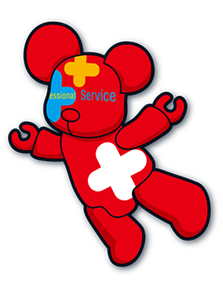Authors (including presenting author) :
CHAN NM
Affiliation :
Medical Acute Stroke Unit, Queen Elizabeth Hospital
Introduction :
Hospital admission is a significant risk factor for the loss of independence, especially for older people. Even only a few days of bed rest can cause cycle of deconditioning of patients including increased fall risk due to reduction of muscle strength, increased risk of thrombosis due to immobilization and the incidence of pressure injury, infection, incontinence and constipation. For those who aged >80, studies show that one week of bed rest results in 10% muscle loss. Patient can further result in decreased appetite, poor digestion and further immobility. Patients may develop confusion or delirium, loss of confidence with increased dependence which causes prolonged hospital stay. Pyjama (PJ) paralysis is a term describing these negative physical and psychological impacts of patients who have lengthy bed rest in their pyjamas or hospital gowns during hospitalization. The United Kingdom's National Health Service (NHS) has launched a campaign that attempted to get patients up, dressed in their own clothes and mobilizing in order to promote their recovery. A #EndPJParalysis 70 Day Challenge was launched by the organization aiming to achieve a million collective days of patients being dressed up during hospital stay at different participating hospitals. A significant result of 710,000 days was accumulated.
Objectives :
1. 30% of admitted patients will be changed out of the hospital gowns and clothes and be dressed in their own clothes and mobilize each day 2. To reduce length of stay 3. To increase patients, carers and healthcare professionals' awareness of the risk of pyjama paralysis
Methodology :
A 2-month 'End Pyjama Paralysis' scheme can be launched in ward in order to prevent unnecessary bed rest and inactivity. Patients who are stabilized and entering the post-acute rehabilitation phase are encouraged to get dressed in own clothes instead of hospital pyjamas and get engaged in out-of-bed activity when appropriate. Relatives or carers are reminded to bring comfortable clothes and footwear for daytime mobilization. Physiotherapists and occupational therapists are liaised to maintain or train up patient's functional level. Ward nursing and supporting staff are encouraged to help patient get changed and sit out of bed regularly. Number of patients who are dressed in own clothes are recorded everyday with a weekly display calendar. Quantitative tool is developed to monitor the percentage of patients in PJs and not in PJs. Data will be collected and analyzed including total bed days, out of PJ days and PJ days. The length of stay in two groups of patients, out of pyjama patients and pyjama patients, will be observed and counted when patients are discharged. Brochures and posters providing information of pyjama paralysis are prepared and distributed to raise awareness.
Result & Outcome :
Patients who participated in the scheme will feel comfortable and dignified whilst independence is supported by healthcare professionals. Patients can increase socialization to preserve resilience and morale. The scheme helps in recovery process by getting up, out of bed and back into their normal routine like bathing and dressing. Mental stimulations that helps psychological wellbeing can be enhanced such as having conversations, listening to the radio or eating together. It in turn helps in transition from hospital to home. Hospital length of stay of participating patients can be reduced accordingly. Relatives and carers are communicated and social support can be empowered. Awareness of PJ paralysis is promoted and prevention can be made by healthcare disciplines. Healthcare staff who are engaged experiences patients' health and wellbeing benefits from the scheme. Satisfaction of work is gained because patient's dignity is boosted and sense of identity is preserved in hospital.








